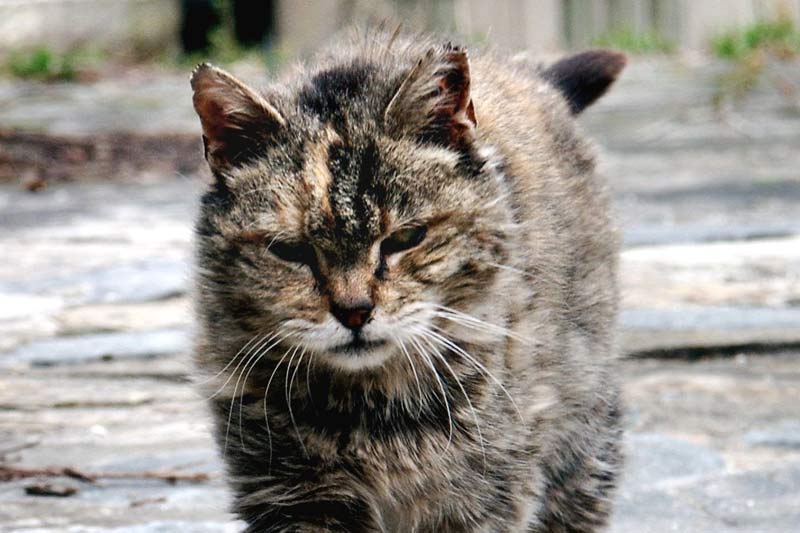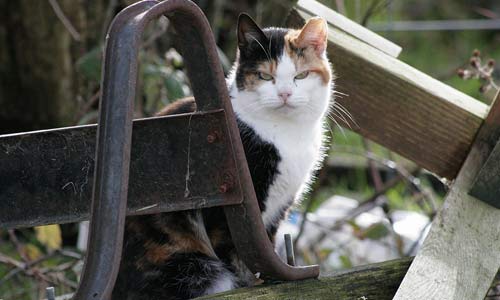Feral Cats
Feral cats are found across Australia, but are more pervasive in SA. They’re also sometimes found in NSW, Victoria and on the tip of Queensland. Feral cats are either previously domestic house cats that have been dumped or strayed, or they have bred in the wild. They have reverted to a feral state and have a strong hunting instinct. As a result, feral cats are a threat to native wildlife and should be removed safely by an expert Flick Pest Control technician.
Flick Pest Control offers comprehensive feral cat control solutions to help manage and reduce the population of feral cats in your area. With humane trapping and removal techniques, Flick Pest Control ensures that feral cats are safely removed from your property without causing harm to the animals. Additionally, Flick Pest Control can provide advice on how to prevent feral cat infestations in the future, helping to protect both your property and the local wildlife.
By working with professionals like Flick Pest Control, individuals and communities can effectively control and manage feral cat populations to ensure the safety and well-being of both humans and animals.

Commercial Pest Solutions
Integrated Feral Cat Solutions
It is essential for businesses to prioritise the health and safety of their employees and customers. Feral Cats not only pose a health risk but also damage property and reputation. Flick’s professional commercial pest control services provide tailored solutions to prevent and eliminate any pest infestations, ensuring a clean and hygienic environment for everyone. Our regular inspections and treatments help to maintain a pest-free workplace and protect your business from potential pest related damage. Trusting in Flick’s commercial pest control solutions is a smart investment in the long-term success and reputation of any business.
Learn more here or call 1300 270 019.
Common Feral Cat Questions
Why are feral cats considered pests?
Feral cats are cats that were formerly domestic and have gone wild. They will attempt to obtain their food needs from the natural environment, eating small mammals such as birds, fish and sometimes small possums. This has caused serious problems, with the decline and even extinction of native Australian fauna such as the bilby, bandicoot and numbat. Feral cats can also impact human activities such as businesses and carry infectious diseases.
What are the habits of feral cats?
Feral cats are the same species as domestic cats. However, they live and reproduce in the wild and survive by hunting or scavenging. Feral cats can be found all over Australia in a range of habitats and can be particularly prevalent on islands. They are solitary and nocturn, spending most of the day in a safe shelter before coming out at night to hunt.
What do feral cats eat?
Feral cats are carnivores – they generally eat birds, reptiles, amphibians, fish and insects. Cats are not native to Australia and have unfair advantages over small native animals. Feral cats are opportunistic predators that have pushed more than 100 Australian native species to the edge.
Are feral cats common in urban areas?
While they love the bush, feral cats also do well in urban areas, thanks to their ability to scavenge and hide. Feral cats can proliferate in urban areas when domestic cats are uncared for or kittens are dumped. They love urban areas where food and shelter are available.
How can Flick help with feral cats?
Feral cats can be dangerous and need professional assistance. Flick technicians are skilled at managing feral cats. We can efficiently trap them, particularly semi-feral urban cats. The team will install traps such as a wire “treadle-type” box trap. We prioritise the safety of both native and non-native animals and will take captured cats to a veterinarian for an assessment and to be placed in foster care.
Common Cat Species

Feral Cats
Apppearance
The same species as domestic cats. Average Length 46cm, Height 24cm. 30cm long tails. Males are larger than females. Approx. 5kg.
Lifestyle
Even after long-term attempts at socialisation and attempts by humans to domesticate them, feral cats often remain aloof and nocturnal. They are devastating to wildlife and considered to be one of the worst invasive species. Trapping them is important – call your local Flick Pest Control team and we’ll remove them safely.
Habits
A feral cat lives outdoors and avoids human contact. It does not allow itself to be handled, and usually remains hidden from humans. Feral acts may formerly have been domesticated and been abandoned or bred over dozens of generation. They are apex predators in urban and bushland environments.
I found Feral Cats! Help!
Don't worry, we're here to help. Follow these steps to stay safe until help arrives!
Call a Professional
Call Flick Pest Control Immediately.
If you encounter feral cats in your home or business, you may be dealing with an infestation. Don’t wait until the problem gets out of hand – we can help protect your property and ensure the health and safety of those around you. Fill out the form below or call 1300 270 019 today.
Leave the Feral Cats Alone
Trust Flick Pest Control to handle the situation
Our pest control technicians have the knowledge, experience, and tools necessary to effectively and safely eliminate pests from your home or business. Attempting to treat feral cats on your own can be risky and may not fully eradicate the problem.
We will and ensure a safe and effective outcome for your property.
There May be More!
Don’t Go Looking Around!
Flick’s pest control experts will perform a thorough inspection of the property to identify any areas where feral cats may be present, followed by the development of a treatment plan tailored to the specific needs of the situation. By implementing effective pest control strategies, we can help ensure a pest-free environment for you.
